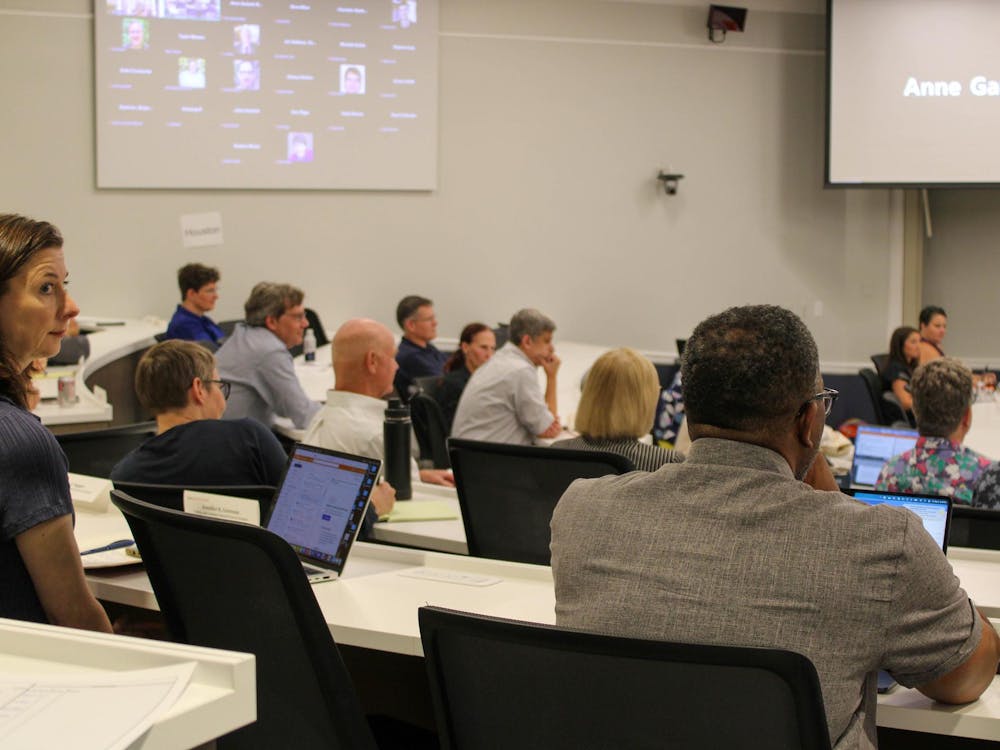The University of North Carolina at Chapel Hill announced a zero-tolerance policy for anabolic steroids Thursday that exceeds University and National Collegiate Athletic Association standards.
Under North Carolina's new policy, students who test positive for steroid use are dismissed from all athletic programs the first time they test positive for this type of steroids. According to the NCAA drug policy, students who test positive for banned drugs, including steroids, are ineligible for at least one season and are suspended from their team's activities for 365 days.
"This was the right thing to do for the University of North Carolina," North Carolina Athletic Director Dick Baddour said. "We didn't intend for it to be a model for any other school, just as something that's right for us."
The policy change did not come in response to problems specific to North Carolina's program, but as part of a review of the steroid policy undertaken in 2004, Baddour said. He emphasized that the policy was aimed to ensure two goals: safety and the integrity of the program.
"We felt that we ought to make a strong statement about those two issues," Baddour said.
Many schools allow athletes to undergo counseling and give students three chances before they are permanently ejected from their athletic program.
Medical professionals warn that athletic penalties are just one of many dangers of steroid use. Among the side effects is an increase in aggressive behavior, liver damage and a shriveling of the testicles, according to Arthur Weltman, the director of the Virginia's Exercise Physiology Program.
"For a school like UNC to make a no tolerance policy is a very strong statement and one that needs to be made in a lot of sports," Weltman said.
The University's program bans elicit drug use and anything that is banned by all national and international athletic organizations and associations in which the University participates.
The University adheres very strictly to the NCAA policy, Weltman said.
"We've been the leaders in implementing education about drug use in the NCAA," he said. "We run an exceedingly clean program here."
The University is not changing its policy about steroid use, according to Ethan Saliba, University Assistant Director of Athletics and Head Athletics Trainer.
"Sometimes you just make bad decisions," Saliba said. "It's hard to say people will be naïve at this age, but this absolutism sometimes makes it very encumbering. But I respect [UNC's] stance that they have a limited tolerance for it because it gives an unfair advantage and it poses health risks."
Athletes at the University are subject to random drug testing. Individuals may also be tested for steroids or other drugs if there is any degree of suspicion among peers or coaches that the person is using a banned substance, Saliba said.
Athletes who test positive for a banned substance are required to meet with a counselor to determine whether it was a result of bad decision making, to establish concerns and to determine further treatment. Athletes then must test clean of the drug and participate in a conference with their coach, parents and an athletic organization drug policy liaison before being allowed to return to their program.
The current policy is aimed at education and treatment.
"It's not that we condone it at all," Saliba said. "Ours tends to be more a pragmatic then philosophical approach to [the drug policy]."
According to Saliba, although students have been released from teams because of repeated offenses, steroids have not been a problem at the University before.
"After the third offense, it's determined that you have made a choice that your behaviors are more important than your opportunity, and you have basically said that the educational treatments and intervention are not successful," Saliba said. "We don't want to put you in harms way or want to have that type of behavior in this environment."






